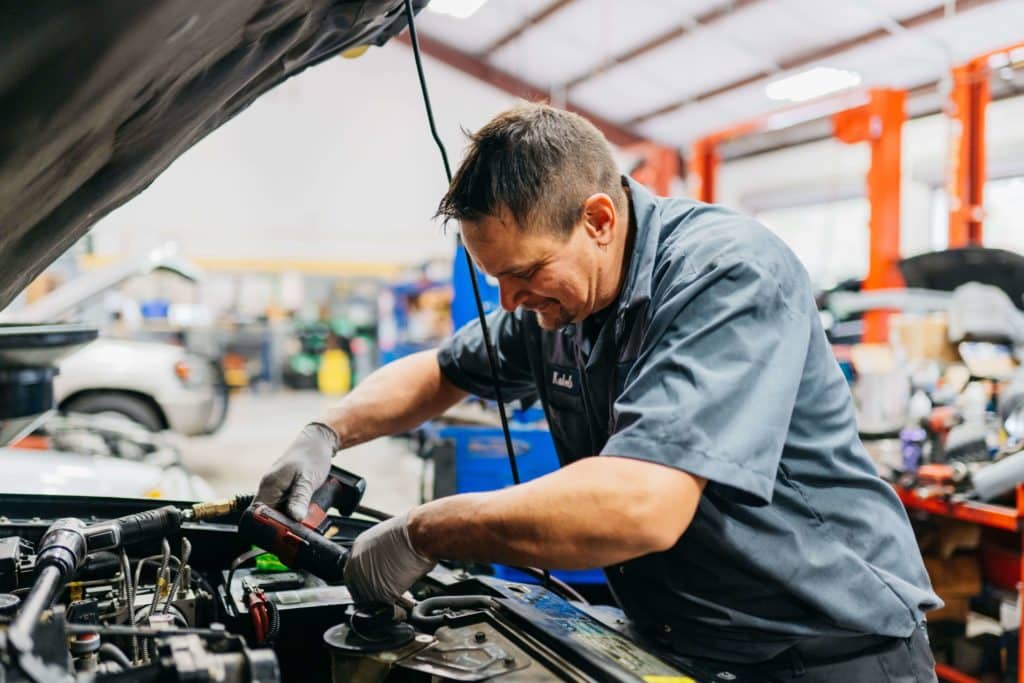All Categories
Featured
The timing belt is a crucial element of your engine, responsible for integrating the activity of various engine parts, such as the crankshaft and camshaft. While the timing belt may not be something you assume around frequently, neglecting its upkeep can lead to substantial engine damages and pricey repair services.
What Is a Timing Belt and How Does It Function? The timing belt is a rubber or composite material belt that attaches the crankshaft to the camshaft in an interior combustion engine. The camshaft regulates the opening and closing of the engine's consumption and exhaust shutoffs, and it should be timed completely with the movement of the pistons in the engine. The timing belt makes sure that these elements are in sync, permitting the engine to run smoothly.
If the timing belt ends up being or falls short worn out, the camshaft and crankshaft will no more be synchronized, which can trigger the engine's shutoffs to hit the pistons. This leads to tragic engine damage and usually needs costly repairs or even an engine substitute.
Why Is Timing Belt Substitute Important? Over time, the timing belt can use down because of rubbing, warmth, and general engine wear. While it might appear like a little issue, a malfunctioning timing belt can bring about significant engine troubles. Right here's why timely replacement is crucial:
Protecting Against Engine Damage: As stated, a busted or sliding timing belt can create the engine's shutoffs and pistons to clash. This causes curved valves, damaged pistons, and in extreme cases, a total engine failure. Replacing the timing belt before it damages can prevent this pricey damage.
Maintaining Engine Efficiency: A worn-out timing belt can interrupt the synchronization of the engine elements, minimizing overall engine efficiency. Changing the belt aids preserve optimal engine feature, making certain smooth procedure, boosted fuel performance, and much better performance.
Staying Clear Of Unexpected Malfunction: A busted timing belt can leave you stranded on the side of the road, triggering a significant hassle. By changing the timing belt at the recommended intervals, you can prevent the danger of an unanticipated malfunction, particularly in the middle of a long journey or when you least expect it.
![]()
Saving Money over time: While timing belt substitute can feel like an expenditure you may desire to put off, it's more affordable than the expense of fixing or replacing a damaged engine. The replacement price is fairly budget-friendly contrasted to the substantial repair services required if the timing belt breaks. Proactive maintenance can conserve you thousands of dollars in repair services and maintain your vehicle's value.
When Should You Replace the Timing Belt? The timing belt replacement routine can vary relying on your car's make and design. As a whole, the majority of producers suggest changing the timing belt every 60,000 to 100,000 miles. However, it's constantly best to consult your owner's manual or a relied on auto mechanic for details suggestions for your lorry.
Indications that your timing belt may need replacement consist of unusual engine noises such as grumbling or ticking, trouble starting the engine, or a recognizable decrease in engine efficiency. If you experience any one of these signs and symptoms, it is very important to have the timing belt evaluated quickly.
![]()
Conclusion. Replacing the timing belt at the recommended intervals is a key component of preserving your engine's health and making certain that your lorry runs efficiently. A broken timing belt can cause costly repair services, engine failing, and unforeseen failures, which can be stayed clear of with proper maintenance. Always adhere to the maker's recommended timing belt substitute routine and get in touch with a professional mechanic if you observe any kind of indicators of wear or damages. By maintaining this vital part of your engine in great problem, you'll shield your automobile from pricey repairs and delight in numerous more miles of stress-free driving.
What Is a Timing Belt and How Does It Function? The timing belt is a rubber or composite material belt that attaches the crankshaft to the camshaft in an interior combustion engine. The camshaft regulates the opening and closing of the engine's consumption and exhaust shutoffs, and it should be timed completely with the movement of the pistons in the engine. The timing belt makes sure that these elements are in sync, permitting the engine to run smoothly.
If the timing belt ends up being or falls short worn out, the camshaft and crankshaft will no more be synchronized, which can trigger the engine's shutoffs to hit the pistons. This leads to tragic engine damage and usually needs costly repairs or even an engine substitute.
Why Is Timing Belt Substitute Important? Over time, the timing belt can use down because of rubbing, warmth, and general engine wear. While it might appear like a little issue, a malfunctioning timing belt can bring about significant engine troubles. Right here's why timely replacement is crucial:
Protecting Against Engine Damage: As stated, a busted or sliding timing belt can create the engine's shutoffs and pistons to clash. This causes curved valves, damaged pistons, and in extreme cases, a total engine failure. Replacing the timing belt before it damages can prevent this pricey damage.
Maintaining Engine Efficiency: A worn-out timing belt can interrupt the synchronization of the engine elements, minimizing overall engine efficiency. Changing the belt aids preserve optimal engine feature, making certain smooth procedure, boosted fuel performance, and much better performance.
Staying Clear Of Unexpected Malfunction: A busted timing belt can leave you stranded on the side of the road, triggering a significant hassle. By changing the timing belt at the recommended intervals, you can prevent the danger of an unanticipated malfunction, particularly in the middle of a long journey or when you least expect it.

Saving Money over time: While timing belt substitute can feel like an expenditure you may desire to put off, it's more affordable than the expense of fixing or replacing a damaged engine. The replacement price is fairly budget-friendly contrasted to the substantial repair services required if the timing belt breaks. Proactive maintenance can conserve you thousands of dollars in repair services and maintain your vehicle's value.
When Should You Replace the Timing Belt? The timing belt replacement routine can vary relying on your car's make and design. As a whole, the majority of producers suggest changing the timing belt every 60,000 to 100,000 miles. However, it's constantly best to consult your owner's manual or a relied on auto mechanic for details suggestions for your lorry.
Indications that your timing belt may need replacement consist of unusual engine noises such as grumbling or ticking, trouble starting the engine, or a recognizable decrease in engine efficiency. If you experience any one of these signs and symptoms, it is very important to have the timing belt evaluated quickly.

Conclusion. Replacing the timing belt at the recommended intervals is a key component of preserving your engine's health and making certain that your lorry runs efficiently. A broken timing belt can cause costly repair services, engine failing, and unforeseen failures, which can be stayed clear of with proper maintenance. Always adhere to the maker's recommended timing belt substitute routine and get in touch with a professional mechanic if you observe any kind of indicators of wear or damages. By maintaining this vital part of your engine in great problem, you'll shield your automobile from pricey repairs and delight in numerous more miles of stress-free driving.
Latest Posts
Uncover Top Car Repair Services in Chicago – Drive with Confidence
Published en
1 min read
Explore Your Financial Partner at WyHy – Top Benefits for Your Financial Goals
Published en
1 min read
How Chicago Drivers Select Montclare Auto Repair for Reliable Service and Big Savings
Published en
1 min read
More
Latest Posts
Uncover Top Car Repair Services in Chicago – Drive with Confidence
Published May 23, 25
1 min read
Explore Your Financial Partner at WyHy – Top Benefits for Your Financial Goals
Published May 23, 25
1 min read
How Chicago Drivers Select Montclare Auto Repair for Reliable Service and Big Savings
Published May 22, 25
1 min read